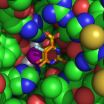(Press-News.org) Habituation refers to the ability of an organism to stop responding to repeated stimulation.
A new study has examined the impact of maternal drinking on fetal habituation or learning abilities while still residing in the mother's womb.
Results showed that those fetuses exposed to heavy binge drinking required significantly more trials to habituate, and also exhibited a greater variability in test performance.
While it has become clear that drinking during pregnancy can damage the fetal central nervous system, these outcomes can also be influenced by factors such as timing, type, amount, and duration of alcohol exposure. Furthermore, most studies of fetal neurobehavioral effects have been conducted during the postnatal period. This study is the first of its kind, examining alcohol's effects on fetal brain function – information processing and stability of performance – at the time of exposure to alcohol.
Results will be published in the December 2012 issue of Alcoholism: Clinical & Experimental Research and are currently available at Early View.
"When examined after birth, individuals who have been prenatally exposed to alcohol exhibit a wide range of behaviours that are indicative of central nervous system dysfunction," explained Peter G. Hepper, a professor of psychology at Queen's University of Belfast as well as corresponding author for the study. "These can include poorer abilities to learn, deficits in attention, poorer abilities to plan and organize, and an inability to learn about the consequences of actions. As a consequence, they may demonstrate behavioural difficulties and social problems which might lead to problems at school, and often 'trouble with the law.'"
"This study used a process of habituation, which is the ability of an organism to stop responding to repeated stimulation," explained Leo Leader, a senior lecturer in the School of Women's and Children's Health at the University of New South Wales. "This reflects the ability of the central nervous system to learn to recognize a particular stimulus. It is widely accepted that habituation represents a basic form of learning. Previous research has shown that the normal human fetus habituates, but habituation rates are altered if the fetus is exposed to reduced oxygen levels, maternal smoking, maternal sedatives, and impaired fetal growth."
"There have been no other studies looking at the habituation or learning abilities of the individual at the time they are being exposed to alcohol, that is, in their mother's womb," said Hepper. "Essentially, we played a loud two-second sound to the fetus via a speaker on the mother's abdomen. We watched using ultrasound whether the fetus moved, jumped or startled to the sound. The sound was repeated every five seconds and the response of the fetus recorded each time. As the sounds are repeated, the fetus's response got weaker and eventually, after a number of sound presentations, disappeared. At this point the fetus is said to have habituated."
Hepper and his colleagues examined 78 non-smoking mothers with normal, apparently healthy, single pregnancies from the Royal Jubilee Maternity Service in Belfast. Details of the mothers' alcohol consumption were obtained through questionnaires completed at 12 to 14 and 18 to 20 weeks gestation as well as semi-structured interviews at 34 weeks of gestation. Following identification of the mothers' drinking habits, five groups of fetuses were examined: control (n=30), moderate amounts consumed during the week (n=15), moderate amounts consumed during a binge period (n=13), heavy amounts consumed during the week (n=9), and heavy amounts consumed during a binge period (n=11). Fetal performance was examined on three occasions, seven days apart, beginning at 35 weeks of gestation.
"We have demonstrated that at the time of exposure, alcohol is affecting a fundamental psychological process known as habituation that underlies many of our more complex psychological abilities," said Hepper. "Habituation is a basic but high level psychological process that controls information flow in the brain. For example, when you enter a room for the first time you may be aware of the loud ticking of a clock. However, very quickly you will no longer 'hear' or pay attention to the ticking. The process of habituation has told the brain the ticking]is a non- threatening stimulus and switches attention to other things of merit. How good we are at this is a measure of how well we can process information. The quicker the habituation process, the better able individuals are to process information by turning off attention to irrelevant non-changing stimuli, and focusing attention and awareness on new potentially threatening stimuli."
"Results showed that the fetuses of mothers who binge drink five to 10 drinks per week, or drink more than 20 drinks a week drunk evenly, or as a binge over two to three days take significantly longer to habituate," added Leader. "The study also showed that binge drinking was associated with more variability of the fetus to learn. For normal learning and development, the fetal brain requires stability and this result implies that binge drinking impaired this function."
"One often ignored element of our brain function is its stability in functioning," agreed Hepper. "That is, our brain operates today the same as it did yesterday and will operate the same tomorrow. This is fundamental to our ability to exist and function in the world. Our study demonstrated that when exposed to alcohol there was increased variability in the brain's ability to habituate. The brain didn't perform the same. By observing these behavioural effects before birth, we can start to identify the areas of brain affected by alcohol and possibly develop treatments. Moreover, by identifying the presence of alcohol-induced problems before birth, it will be possible to implement better management strategies much earlier and hopefully improve outcomes."
Both Hepper and Leader noted that no safe level of alcohol consumption during pregnancy has been identified. "One 'oddity' of prenatal exposure to alcohol is there are large individual differences in its effects," said Hepper. "Some individuals whose mothers drink heavily may exhibit few effects whilst others whose mothers drink less may exhibit much greater effects. By observing the behaviour of the fetus it will be possible to ascertain which and by how much individuals have been affected by exposure to alcohol. To be safe, however, no drinking during pregnancy would be wise."
### Alcoholism: Clinical & Experimental Research (ACER) is the official journal of the Research Society on Alcoholism and the International Society for Biomedical Research on Alcoholism. Co-authors of the ACER paper, "Fetal Brain Function in Response to Maternal Alcohol Consumption: Early Evidence of Damage," were James C. Dornan of the Royal Jubilee Maternity Services at Queen's University of Belfast; and Catherine Lynch of the School of Psychology at Queen's University of Belfast. The study was funded by the Department of Health and Social Services and Public Safety of Northern Ireland, and the National Institute on Alcohol Abuse and Alcoholism. This release is supported by the Addiction Technology Transfer Center Network at http://www.ATTCnetwork.org.
Maternal drinking during pregnancy can damage the earliest fetal learning
2012-09-15
ELSE PRESS RELEASES FROM THIS DATE:
Abstinence from alcohol plus physical exercise can help reclaim bone loss due to alcoholism
2012-09-15
Contact: Peter Malik, M.D.
peter.malik@i-med.ac.at
43.512.504.81629 (Austria)
Medical University Innsbruck
Add'l contact: Sergei Mechtcheriakov, M.D.
s.mechtcheriakov@i-med.ac.at
43.512.504.23636 (Austria)
Medical University Innsbruck
Alcoholism: Clinical & Experimental Research
Abstinence from alcohol plus physical exercise can help reclaim bone loss due to alcoholism
Abstinence from alcohol plus physical exercise can help reclaim bone loss due to alcoholism
Alcoholism is known to cause osteoporosis, or reduced bone mineral density (BMD).
New ...
Symptoms of alcohol abuse, not dependence, may better reflect family risk for alcohol use disorders
2012-09-15
Contact: Kenneth S. Kendler, M.D.
kendler@vcu.edu
804.828.8590
Virginia Commonwealth University School of Medicine
Alcoholism: Clinical & Experimental Research
Symptoms of alcohol abuse, not dependence, may better reflect family risk for alcohol use disorders
Symptoms of alcohol abuse, not dependence, may better reflect family risk for alcohol use disorders
Individuals with alcohol use disorders (AUDs) vary widely in their age of onset of use, patterns of drinking, and symptom profiles. AUDs are often 'divided' into two categories: alcohol abuse (AA) and ...
Canadian homes a kill zone for up to 22 million birds a year
2012-09-15
(Edmonton) The thud of a bird hitting a window is something many Canadian home owners experience. Up until now, little research has been done to document the significant these collisions for Canada's bird populations. A University of Alberta biology class project supervised by researcher Erin Bayne suggests that many birds meet their end in run-ins with Canadian homes.
The U of A students estimate a staggering 22 million birds a year die from colliding with windows of homes across the country.
The research was done in Edmonton and surrounding area using evidence gathered ...
Study shows wildfires' positive and negative economic impacts
2012-09-15
EUGENE, Ore. -- Despite the disruptions they cause, large wildfires are a mixed economic bag for nearby communities, according to findings from a research project by the University of Oregon's Ecosystem Workforce Program and its collaborators.
Wildfires disrupt the lives of workers, employers and families, and lead to longer-term instability in local labor markets, the project funded by Joint Fire Science Program found. But on the flip side of the coin, countywide employment and wages increase in some sectors during the wildfires, often mitigating the short-term employment ...
Feeling stressed by your job? Don’t blame your employer, study shows
2012-09-15
Work stress, job satisfaction and health problems due to high stress have more to do with genes than you might think, according to research by Timothy Judge, professor of management at the University of Notre Dame's Mendoza College of Business.
The lead author of "Genetic influences on core self-evaluations, job satisfaction, work stress, and employee health: A behavioral genetics mediated model," published in Organizational Behavior and Human Decision Processes, Judge studied nearly 600 twins – some identical, some fraternal – who were raised together and reared apart. ...
NASA's Aqua satellite sees Tropical Storm Kristy weaken, other system developing
2012-09-15
The Eastern Pacific Ocean has become "tropically" alive on NASA satellite data today, Sept. 14. NASA's Aqua satellite captured an image of weakening Tropical Storm Kristy and another low pressure area that is developing and has the potential to become a new tropical depression.
NASA's Aqua satellite passed over the eastern Pacific Ocean on Sept. 14 at 5:23 a.m. ED, and the Atmospheric Infrared Sounder (AIRS) instrument captured an infrared image of Kristy and a new developing low pressure area. The infrared data indicated the strongest thunderstorms and heaviest rainfall ...
Discovery of essential genes for drug-resistant bacteria reveals new, high-value drug targets
2012-09-15
BUFFALO, N.Y. -- Biomedical scientists collaborating on translational research at two Buffalo institutions are reporting the discovery of a novel, and heretofore unrecognized, set of genes essential for the growth of potentially lethal, drug-resistant bacteria. The study not only reveals multiple, new drug targets for this human infection, it also suggests that the typical methods of studying bacteria in rich laboratory media may not be the best way to identify much-needed antimicrobial drug targets.
The paper (http://mbio.asm.org/content/3/4/e00113-12) focuses on a ...
NASA's TRMM satellite sees Nadine still struggling to become a hurricane
2012-09-15
Tropical Storm Nadine's life story during the week of Sept. 11 has been about the storm's continual struggle to become a hurricane. NASA's TRMM satellite captured a look at the rainfall and towering clouds within Nadine as the system continues to deal with wind shear and dry air that are keeping it under hurricane status.
On Sept. 14 at 5 a.m. EDT Tropical Storm Nadine's maximum sustained winds were still near 70 mph (110 kmh). Nadine has been battling wind shear during the week of Sept. 11 and is moving into an area where upper-level winds are not favorable for enabling ...
NASA examines very dangerous Super Typhoon Sanba
2012-09-15
NASA's TRMM satellite examined super soaking Super Typhoon Sanba and powerful hot towering thunderstorms around its center and rain falling at a rate as high as three inches per hour.
Kadena Air Base on Okinawa, Japan is on alert as Super Typhoon Sanba approaches. The center of Super Typhoon Sanba is current forecast to come very close to Okinawa on Sept. 15. Today, Sept. 14 at 12 p.m. EDT, Kadena Air Base was on TCCOR 2 alert, which means sustained winds of 50 knots (58 mph) or greater are anticipated within 24 hours.
The Tropical Rainfall Measuring Mission (TRMM) ...
New tech stymied by copyright law
2012-09-15
CAMDEN -- From Napster to iTunes to Pandora, the methods by which the public can obtain and share music have rapidly progressed.
Future groundbreaking innovations may need to wait, though, as the next generation of technology is being stymied by the very copyright laws that seek to protect the industry, says Michael Carrier, a professor of law at Rutgers–Camden.
"There is not enough attention being given to the effect copyright law has on innovation," Carrier says about the fight against copyright infringement and the attempt to extinguish every instance of piracy.
For ...



